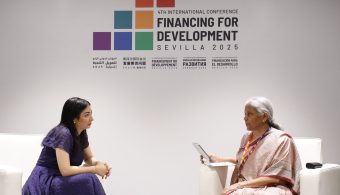Photos’ Credit: x.com/DrSJaishankar
In a significant boost to the India-Germany partnership, Indian External Affairs Minister Dr. S. Jaishankar’s recent meetings with top German leaders, including Foreign Minister Annalena Baerbock, have paved the way for deeper cooperation across a range of sectors.
The discussions, which took place in Berlin on 10 September, underscored the strong bilateral relationship, focusing on strategic areas such as trade, defense, technology, and sustainability. Jaishankar’s visit comes at a time when both nations are keen to enhance their collaboration, especially in light of pressing global challenges and the increasing importance of the Indo-Pacific region.
Speaking to the media after his talks with Baerbock, Jaishankar emphasized, “India and Germany share a strong commitment to multilateralism, democratic values, and addressing global challenges together. Our partnership is built on trust and mutual benefit, and there is vast potential to take it even further.”
Green and Sustainable Development Partnership: A Flagship Initiative
One of the key outcomes of the meetings was the reaffirmation of the Green and Sustainable Development Partnership (GSDP) between India and Germany, a flagship initiative that aims to support India’s transition to clean energy. This initiative was first launched in 2022, with Germany committing €10 billion by 2030 to finance India’s green projects, focusing on renewable energy, green hydrogen, and urban sustainability.
Jaishankar lauded Germany’s contribution, stating, “Germany’s leadership in green technologies is crucial for India’s sustainable development goals. This partnership will help us achieve our ambitious energy targets, while also contributing to the global fight against climate change.”
Germany’s Foreign Minister Annalena Baerbock echoed these sentiments: “We see India as a key partner in the global effort to tackle climate change. Our cooperation under the GSDP will not only support India’s energy transition but also create new opportunities for innovation and technology exchange between our countries.”








